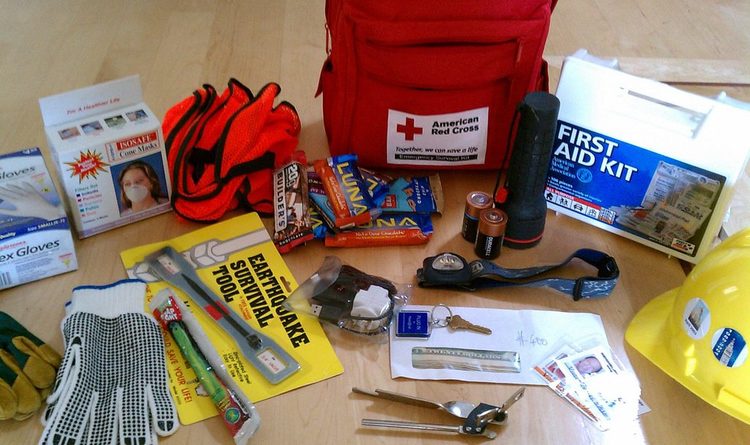
If a massive disaster wiped out power to your region right now, with no hope of recovery for at least several days, would you be ready? Would you have a way to connect with your family? Would you have enough nonperishable food for everyone? In short, do you have the right plan and supplies to get through an emergency?
In the insurance business, we know a little something about helping people recover from disasters. We know that a little preparation goes a long way. So here are some tips from the Red Cross, Centers for Disease Control and others on what you should put in an emergency preparedness kit for you and your family:
The big stuff: food and water At home, consider keeping a two-week supply of nonperishable food on hand in a safe, dry place. You might already have a good head start on this, depending on what’s in your pantry. You also need a two-week supply of water, according to the Red Cross. That’s one gallon per person, per day. Don’t forget your pets. They’ll need their food and water as well. For evacuation situations, take a three-day supply of the above.
Safety items If the power is out for an extended period, you’ll need flashlights or battery-powered lanterns (with extra batteries). A portable, hand-crank radio will ensure you stay informed on the situation. A first-aid kit is a must, along with at least a week’s worth of any medications that family members need. Emergency blankets and warm clothes are crucial if the weather is cold. Don’t forget personal hygiene items.
Paperwork You could be forced to evacuate, so it’s important to have certain things down on paper — for example, family and emergency contact information. You’ll also want to keep copies of personal documents, such as proof of address, passports, birth certificates, and insurance policies.
Other items There are a multitude of other things you can include in your kit, of course. A multipurpose tool, extra cash, and maps of the area are a few recommendations, along with games and activities to keep the kids occupied, if needed.
Above all, consider the unique needs of you and your family when putting together your kit. Put everything in labeled containers that can be accessed quickly and carried if necessary. Once you’ve created your kit, check it each September during National Preparedness Month for expired items, including medications, and missing supplies.
Of course, we hope you never have to use your kit. But it’s far better to have one you don’t need instead of needing one you don’t have.
If you live in Oregon or Washington contact us, . As an independent agency, we can provide quotes for auto insurance, homeowners insurance, and other insurance products from several highly regarded, nationally known insurers. Call today. We are always ready to discuss your insurance, and are happy to help you find coverage that suits your needs. Fox Insurance Agency today 503-277-2300.
The information in this article was obtained from various sources and is not all inclusive regarding the subject matter. This content is offered for educational purposes only and does not represent contractual agreements, nor is it intended to replace manuals or instructions provided by the manufacturer or the advice of a qualified professional. The definitions, terms and coverage in a given policy may be different than those suggested here and such policy will be governed by the language contained therein. No warranty or appropriateness for a specific purpose is expressed or implied. Reposted with permission from the original author, Safeco Insurance.
Top image by Global X Flickr user used under Creative Commons Attribution - Sharealike 2.0 license . Image cropped and modified from original.

